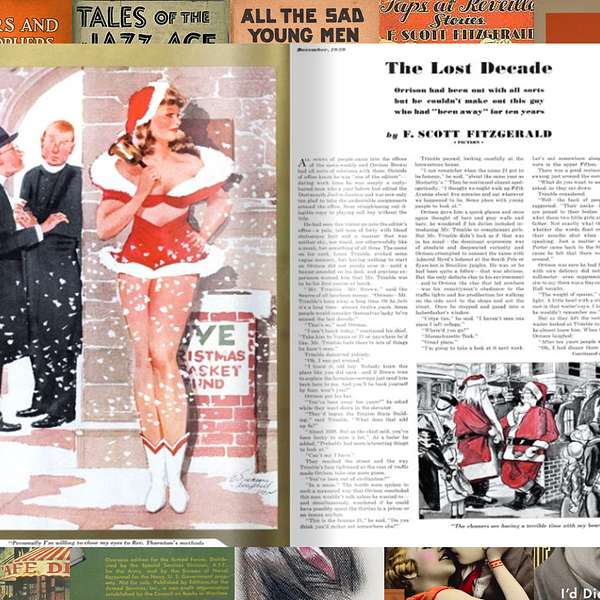
Master the 40: The Stories of F. Scott Fitzgerald
Master the 40: The Stories of F. Scott Fitzgerald
The Lost Decade
Use Left/Right to seek, Home/End to jump to start or end. Hold shift to jump forward or backward.
Our eighth episode focuses on the shortest short story Fitzgerald ever published, "The Lost Decade," which clocks in at only 1,100 words, making it Depression-era kin to today's flash fiction. Appearing in Esquire in December 1939 (exactly one year before the author's death), "Decade" is a haunting masterpiece of intimation and mood: eminence grise Matthew J. Bruccoli summed it up perfectly when he called it "elliptical." Told from the perspective of a New York City newspaper "call boy," Orrison Brown, the story focuses on an architect, Louis Trimble, who wanders the metropolis seeking to reestablish contact with the fleeting sights and sounds of real life. Not until the end of the piece do we learn Trimble is newly sober after an entire decade in an alcoholic stupor. The story's stoic tone is a perfect metaphor for both Fitzgerald's and America's struggle to survive the psychic shocks of the 1930s. We compare "The Lost Decade" to other representations of alcoholism in Fitzgerald's fiction, exploring what in the story is new, and we connect its New York setting to a stirring nonfiction ode to Gotham Fitzgerald penned only a few years earlier, "My Lost City."